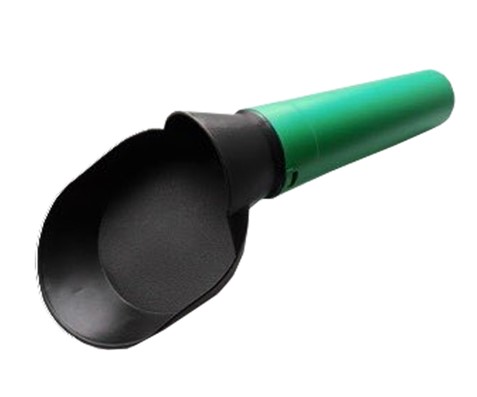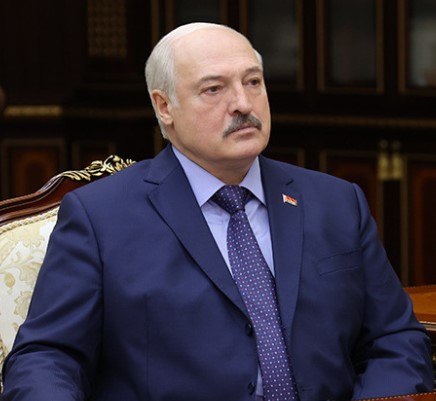This year, total payments for agricultural insurance may reach 3.5 billion rubles

Bizhdov also noted that since the beginning of 2023, three large payments have been made to livestock farmers in connection with African swine fever ( ASF ). As a result of damage from ASF at a large livestock site, AlfaStrakhovanie Insurance Company paid more than 1 billion rubles, including 850 million rubles to one farm. Also in Primorsky Krai, due to ASF and a typhoon, RSHB Insurance Company paid 168 million rubles, and in Stavropol Krai, due to drought in the eastern regions, Rosgosstrakh Insurance Company paid 180 million rubles.
Bizhdov added that in 2022, due to waterlogged soil in the regions of the Central Black Earth Region, farmers were paid 1.3 billion rubles by the companies SK Avangard-Garant, AlfaStrakhovanie and other insurers. And in the period from 2020 to 2021, in the Stavropol Territory, due to drought and frost, a group of insurers paid 2.9 billion rubles. According to preliminary data from the NSA, as of November 1 of this year, the insured area of crops increased by 86% - from 5.9 million hectares to 10.9 million hectares, which is about 13% of the total sown area in RUSSIA. 2.6 million hectares of winter crops have already been insured for the 2024 harvest .
Russian vegetable growers have insured 51 thousand hectares in 23 regions for 10 months of 2023. Over the past four years, the insured area for vegetables has tripled. The coverage of vegetable crop insurance is 27% of the total area, a total of 190 thousand hectares of vegetable crops are insured, of which 38% are insured under the climate emergency protection program, Bizhdov explained.
Independent grain market expert Alexander Korbut said that farmers still have problems with insurance, in particular, problems with receiving payments. "It's one thing to give money , another to receive it. Sometimes mistakes occur due to the fault of farmers, but insurers should take control of this and explain to the farmer what he is doing wrong. In general, this service is in demand, because there is no escape from natural, climatic and veterinary risks. Accordingly, the question of insurance arises, it is most in demand in the field of animal husbandry," the expert commented. The total increase in insured livestock increased by 12% to 10.7 million conventional heads, NSA estimated.
According to Korbut, it should be taken into account that compensation for damage under insurance mainly concerns large enterprises, since they have good economic and legal services. "In this case, payment guarantees are more likely than those of smaller agricultural producers. In general, the industry is under pressure, I mean that they can deprive subsidies due to the refusal of insurance, although not everyone needs it," the expert reasons. In his opinion, the range of insurance products in Russia should be expanded: add index insurance, profitability insurance, and others. Korbut cited CHINA as an example , where there are about 25 types of insurance, and farmers choose what suits them best. "Then there will be no need to force insurance, producers themselves will choose what they need. Such a measure will meet both its objectives and the interests of agricultural producers," the expert is sure.
In July, it became known that from 2024, having an insurance contract may become a condition for receiving a preferential short-term agricultural loan and certain types of subsidies in the field of crop production.
The Ministry of Agriculture is also working to simplify the agricultural insurance process: an online platform has been developed, where agricultural producers can calculate the cost of insurance in real time, the approximate amount of payment, and also apply for a policy. The development of this project in the future will allow the entire process to be carried out, up to receiving payment, through the platform, which will significantly reduce both paperwork and time costs, the Ministry of Agriculture stated.
Deputy DIRECTOR of the Department of Economics and State Support for the Agro-Industrial Complex of the Ministry of Agriculture Alexander Malov previously said that the number of insurance companies concluding agricultural insurance contracts with state support will decrease by seven in 2024 compared to 2023. This year, amendments were made to the law on agricultural insurance with state support, which extend the requirements for financial stability and conditions for admitting insurers to work under programs with state subsidies to all crop insurance contracts .
Read together with it:
- С начала года Московская область увеличила экспорт свинины на 35% в стоимостном выраженииМосковская область продолжает укреплять позиции одного из ведущих экспортеров продукции агропромышленного комплекса в России. По итогам 9 месяцев с начала года регион нарастил экспорт свинины на 35% по стоимости. В натуральном выражении объем поставок составил 85 тысяч тонн, что на 17% больше, чем за аналогичный период прошлого года. В Министерстве сельского хозяйства и продовольствия Московской о...
- Московская область демонстрирует рост урожая зерновых, картофеля и овощей в 2025 годуВ Московской области отмечается положительная динамика по валовому сбору ключевых сельскохозяйственных культур. Значительно увеличены показатели по зерновым и зернобобовым, картофелю и овощам. В Министерстве сельского хозяйства и продовольствия Московской области сообщают, что валовой сбор зерновых и зернобобовых культур составил 592,2 тыс. тонн, что на 89,9 тыс. тонн или 18% превышает показатель ...
- Rostov wholesaler Everest is merging with a loss-making meat supplier from Donetsk.Donskie Traditsii, a wholesale MEAT supplier operating in Donetsk since 2017, saw its revenue decline by 28% in 2024 , to 273.1 million rubles, while losses narrowed from 14.4 million rubles in 2023 to 5.3 million rubles. In contrast, Everest increased its revenue by 16% to 3.6 billion rubles in 2024, although net profit declined by 24%, to 11.9 million rubles. Creditors of Donskie Traditsii can f...
- China's beef market: shift to affordable cuts and growing Australian suppliesDiversification of Purchasing Murray Davis, Regional ManagerMEAT & Livestock Australia (MLA), covering Greater CHINA, noted that restaurants, particularly hotpot restaurants, are actively seeking alternative cuts such as oyster blade, neck, shank, and chuck. These cuts are becoming popular with consumers due to their affordability and variety of cooking methods. Amid economic uncertainty, restaura...
- China's chilled and frozen beef imports hit a record high in September 2025.This represents a 45% increase in volume compared to the 218,000 tonnes imported in September 2024 . The main drivers of monthly growth were Brazil and Argentina, which strengthened their key roles as suppliers in this market. According to INAC data, Uruguay exported 17,276 tons of beef to CHINA in September , 32% more than the 13,......
- Meat consumption has increased in Argentina.In September 2025, a total of 1.169 million HEAD of cattle were slaughtered in MEAT processing plants . This figure is 1.3% lower than in August, adjusted for the number of working days, and is in addition to the 5.1% drop recorded in August due to heavy rainfall. Furthermore, according to a new report from Ciccra, the Argentine Chamber of Meat Industry and Trade, a 3.3% decline (-4......
- Lawsuit against Tokarevskaya Poultry Farm: The claim is 40 million rubles.Information about the lawsuit became available through the arbitration case file, but the details of the claims have not yet been disclosed. Nika LLC, registered in September 2021 in Tambov, is engaged in the wholesale trade of grain and animal feed. In 2024 , the company recorded revenue of 125 million rubles and a net profit of 1.5 million rubles. As for the Tokarevskaya Poultry Farm, it was fou...





























































